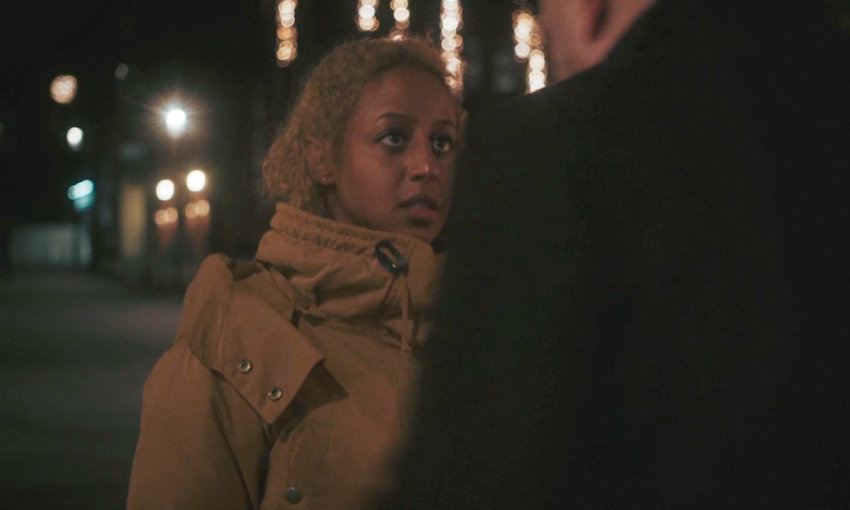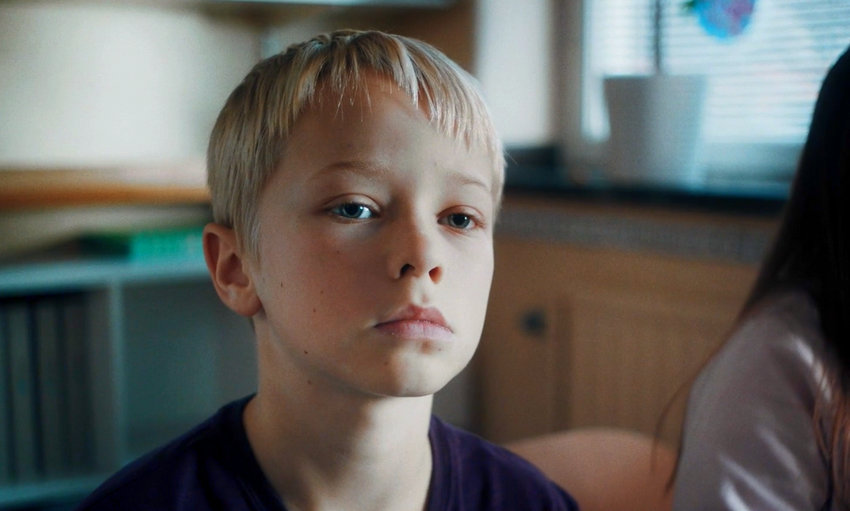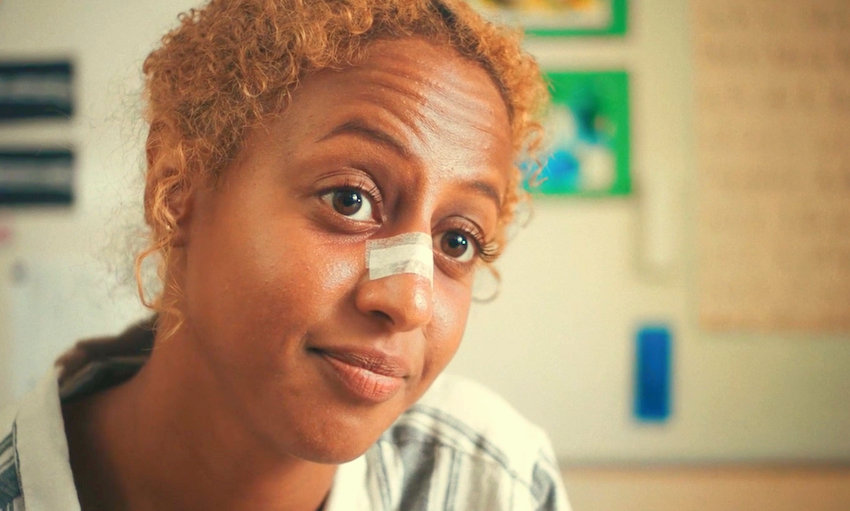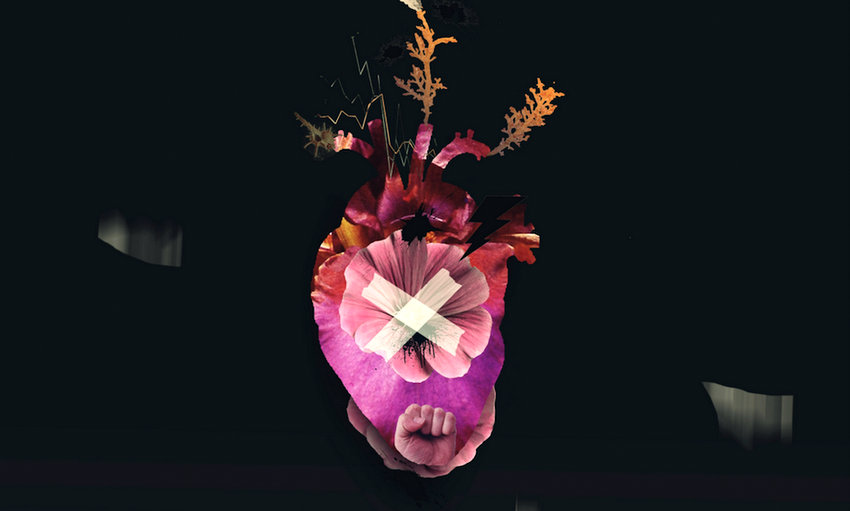
indieactivity: Give a background of your personal experience with the story, writing, production and marketing
Jimmy Olsson: When I grew up in the south of Sweden and was a teenager in the 90´s we had a lot of racism in Sweden and a lot of ignorance. People wanted scapegoats and I guess we grew up trusting the adults, what they said and the media as well. Immigrants are coming and taking our jobs and stuff like that.
It’s all about fear basically and we need to work towards love and not fear. It’s also very crucial to communicate that to kids a lot more because kids that are about 8-9 years old haven’t really developed their own persona yet and their understanding of the world so it’s important that we teach them good values rather than just giving them our prejudice and hate.
That’s why we still have racists and Nazis I guess, It’s an evil circle. Kids are taught in the wrong way in combination with a lot of other stuff. Last year when the Nazis demonstrated in Charlottesville and also a bunch of other extreme right marched all over Europe I felt like I wanted to write something about it. That it all starts from the beginning. A human being is molded by grown ups. Even if it is too late to change an adult we still can change the kids.

indieactivity: Did you start writing with a cast (You or any) in mind?
Jimmy Olsson: Not really. Usually I have people in mind when I write but this time I didn’t. The fact that I am playing a Nazi myself was one of the producers idea and at first I felt like I didn’t want to do it because I’m not an actor but they convinced me to try it and it was the hardest and most disgusting thing I’ve ever done but in the end the turnout was ok I think.
indieactivity: How long did you take to complete the script? (Do you have a writing process?)
Jimmy Olsson: Usually a script starts with the idea of course and then you write down different plot points and small ideas and then I gather them and try to place them in the right order. In this case I got the idea of the balloon and I realized I could use it as a metaphor and the actual writing of the script took just a day and a half. Super quick. The fastest I’ve ever written a short film script. But I felt a flow and it all just came into place.
indieactivity: When did you form your production company – what was the motivation for its formation?
Jimmy Olsson: I’ve always been a freelancer and I still am but my wife and me started our company 3 years ago. She is a DP and we do some stuff together once in a while. The motivation, I don’t know…perhaps that we wanted to collaborate with other writers and directors too. I have been producing a lot but then I stopped doing that for a while and focused only on writing and directing but now I’m quite keen on producing others again, if I’m allowed to be in process creatively that is.
indieactivity: What was the first project out of the gate?
Jimmy Olsson: I do a lot of commercials when I don’t do fiction so the first commercial production was a big shoot in South Africa for a German product and I made that together with a German company. The first short we made in this company was a film called Void that was a part of a music video from the get go and then I took the material and edited a micro short of it. It’s in festivals at the moment too.
indieactivity: During production, what scene (that made the cut) was the hardest to shoot?
Jimmy Olsson: The Nazi scene was the hardest because we wanted a long one take and we needed to time it properly and we didn’t have a big crew and all that so that was actually quite hard. The balloon scene was tough to get the right tone and to do a lot of takes with a young kid is tough but he managed very well I think.

indieactivity: What works better in this production that mightn’t have worked so well in the last one you did?
Jimmy Olsson: Me and the DP on this short planned the shots very well and we took a risk shooting this film because we only planned for 24 shots and we didn’t want to shoot anything more than that. We didn’t want to cover scenes in a conventional way. We wanted to focus on the lead all the time and that could be a risk later in the editing but I think we managed. So the planning of the shots worked very well in this production. We never gave in on our original idea.
indieactivity: You produced and directed the film, what measure of input did it take to don these hats?
Jimmy Olsson: I have done both hats a couple of times before and to me it’s not that hard. I focus on the creative stuff mostly and if we have a problem production wise I put the producers hat on and try to make the problem into something good creatively instead of seeing the problem and get stuck in it. It is a short film and you are in control and you decide what is best all the way so in a way it’s good to do both because you don’t have a person breathing down your neck and stopping you. I stop myself if I have to. I always know what’s best for the film and for the story and steer the production in that direction.
indieactivity: Is there anything about the independent filmmaking business you still struggle with?
Jimmy Olsson: money, always money…. It’s difficult to gather a team and have them work for almost no money. I don’t like that. Even if people are excited about the project they still need to pay rent.
indieactivity: Where do you think your strengths line as a filmmaker?
Jimmy Olsson: My strengths are working with actors. I can bring out the best out of them, as I like to work close to the actors. On a production set, I think I’m a good leader. Since, I have worked in almost every position there is behind the camera so therefore I have a lot of respect for the craft but no one can fool me anymore what we can do and can´t.

indieactivity: Let’s talk finance, How did you finance the film?
JImmy Olsson: Well a company called Makeriet Film, friends of mine. They make commercials. They went in with some money for which I’m very grateful. I have friends in the equipment rental houses so they sponsored me all the way with gear. We got some funding from a place called film base in Stockholm but the film was produced with very little money. A lot of people they did it for free and I’m so happy for that. Normally this film would have costed about 80-100000 dollars to make. We made it for about 6000 dollars.
indieactivity: How much did you go over budget? How did you manage it?
Jimmy Olsson: I had to put some of my own money in it but we didn’t really go over budget.
indieactivity: How important is marketing? Do you think a project can make any dent without it?
Jimmy Olsson: Marketing is very important. Since there is a lot of movies made every day and a lot of good ones as well they tend to disappear. So I’m a firm believer to just put it out there, everywhere just to remind people about it, Social media, a lot of festivals, interviews like this one. Without marketing I don’t think a project really can stand a chance to be honest.
indieactivity: Can you tell us about your marketing activities on the project – and how it’s gone for you?
Jimmy Olsson: My film was finished in April this year and has only begun its festival circuit. I got in contact with a company called London Flair and they do PR for films and hopefully that will create some buzz. I also recently won a couple of awards and I made sure that the Swedish film institute was writing about that to spread the word about my film. Other than that I have spread my trailer a lot and have a Facebook page but it also hard work to maintain all of this. I still have to do some other work as well. Marketing takes time. But it’s worth it.
Watch 2ND CLASS
indieactivity: What do you hope audiences get from your film?
Jimmy Olsson: I hope people can see what fear does to us. And I hope people can be more tolerant towards each other. I hope that we can use metaphors in a better way to speak to our children. This is a matter that has to be repeated over and over all the time. We have to continue working for tolerance and love.
indieactivity: What else have you got in the works?
Jimmy Olsson: Right now I’m in the starting blocks to finance my first feature and I’m also writing two other features at the same time so I have some work cut out for me. It’s fun but hard as well.
Tell us what you think of the interview with the filmmaker. What do you think of it? What ideas did you get? Do you have any suggestions? Or did it help you? Let’s have your comments below and/or on Facebook, Instagram, or Twitter.
Socials
Website
IMDb
Vimeo
MORE STORIES FOR YOU
In Camera by Naqqash Khlalid Launch on VOD April 29
Naqqash Khlalid’s Directs Nabhan Rizwan. In Camera stars an EE BAFTA Rising Star Award Nominee.
2025 Philip K. Dick Sci-Fi Film Festival Award Winners Announced
Vanessa Ly’s Memories of the Future Awarded Best PKD Feature
Dreaming of You by Jack McCafferty Debuts VOD & DVD for April Release
Freestyle Acquires “Dreaming of You” for April 15th Release
Hello Stranger by Paul Raschid set for London Games Festival & BIFFF
The film Is set for an April 10th Premiere at The Genesis Cinema in London (LGF) and BIFFF
Daydreamers Official Trailer by Timothy Linh Bui: Released by Dark Star Pictures
Daydreamers Vietnamese Vampire Thriller – May 2nd release
Afternooner by The Harrow Brothers: Funniest Movie of the Decade on VOD & DVD April
Freestyle Acquires “Afternooner” for April Release









